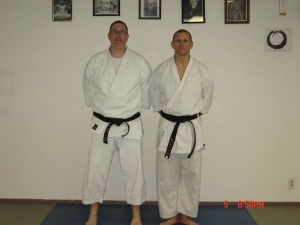Tai Chi – Meditation
What is Tai-Chi Meditation

Tai chi, pronounced "tie chee," is a gentle exercise program that is a part of Traditional Chinese Medicine. Derived from the martial arts, tai chi is composed of slow, deliberate movements, meditation, and deep breathing, which enhance physical health and emotional well-being. Tai chi Meditation is primarily practiced for its health benefits, including a means for dealing with tension and stress. Tai chi emphasizes complete relaxation, and is essentially a form of meditation, or what has been called "meditation in motion." Tai chi traces its roots back to approximately the 2nd millennium B.C. with the practice of yoga in ancient India. Chi is an ancient Chinese notion designating a form of energy. The term literally means something like "breath," as does the ancient Greek word from which we get the word "spirit." According to the philosophy of tai chi, this energy or chi flows throughout the body, but can become blocked. According to Chinese medicine, one becomes ill when the flow of the chi through the body becomes blocked. The Chinese recognize several means for freeing up the flow of chi. Two of the more commonly known forms in this country are acupuncture and tai chi.
In addition to its physical benefits, tai chi is said, by the Chinese, to have certain psychological effects as well. Tai Chi, as a form of meditation, is intended to help one understand oneself and to enable one to deal with others more effectively. This latter function is rooted in one's learning to control oneself. This self-control can come about through two principal notions found in the Tao Te Ching and I Ching. These two notions are the fundamental Taoist notions of yin and yang. The philosophy of Taoism understands everything in terms of these two opposing principles. Though these two principles are seen as opposites, the one necessarily merges into the other, creating the natural balance of self and world, hence the classic symbol of tai chi . The tai chi form is meant to enable one to bring the principles of yin and yang back into their fundamental, natural state to harmonize these pairs of opposites. Finally, tai chi imitates motion found in nature, such as the movements of animals, thereby uniting human beings with the natural world. The ultimate effect of this harmony, according to Taoism and Tai Chi, is one's physical and spiritual well-being.
Tai chi has three major components—movement, meditation, and deep breathing.
- Movement — all the major muscle groups and joints are needed for the slow, gentle movements in tai chi. Tai chi improves balance, agility, strength, flexibility, stamina, muscle tone, and coordination. This low-impact, weight-bearing exercise strengthens bones and can slow bone loss, thus preventing the development of osteoporosis.
- Meditation — research shows that meditation soothes the mind, enhances concentration, reduces anxiety, and lowers blood pressure and heart rate.
- Deep breathing — exhaling stale air and toxins from the lungs while inhaling a plentitude of fresh air increases lung capacity, stretches the muscles involved in breathing, and releases tension. It also enhances blood circulation to the brain, which boosts mental alertness. At the same time, the entire body is supplied with fresh oxygen and nutrients.
Anyone, regardless of age or physical ability, can practice tai chi. It doesn't take physical prowess. Rather, tai chi emphasizes technique over strength.
Tai chi is used to:
- Reduce stress
- Increase flexibility
- Improve muscle strength and definition
- Increase energy, stamina and agility
- Increase feelings of well-being
Stress reduction and other benefits of tai chi
Like other practices that bring mind and body together, tai chi can reduce stress. During tai chi, you focus on movement and breathing. This combination creates a state of relaxation and calm. Stress, anxiety and tension should melt away as you focus on the present, and the effects may last well after you stop your tai chi session.
Tai chi may also help your overall health, although it's not a substitute for traditional medical care. Tai chi is generally safe for people of all ages and levels of fitness. Older adults may especially find tai chi appealing because the movements are low impact and put minimal stress on muscles and joints. Tai chi may also be helpful if you have arthritis or are recovering from an injury.
Despite its ancient history, tai chi has been studied scientifically only in recent years. And that research is suggesting that tai chi may offer numerous other benefits beyond stress reduction, including:
- Reducing anxiety and depression
- Improving balance and coordination
- Reducing the number of falls
- Improving sleep quality, such as staying asleep longer at night and feeling more alert during the day
- Slowing bone loss in women after menopause
- Lowering blood pressure
- Improving cardiovascular fitness
- Relieving chronic pain
- Improving everyday physical functioning
What does a tai chi session entail?
Tai chi sessions are usually group classes that last about an hour. Each session begins with a warm-up exercise. At the same time, students are asked to focus on the point just below their navels, believed to be the center from which chi flows. The teacher encourages the class to perform all movements in a slow, meditative manner and to focus on deep breathing. At the end of the class, there is usually a wind-down exercise, relaxation, and meditation. Classes are usually taught on a weekly basis. Many practitioners recommend practicing tai chi for about 15 to 20 minutes twice daily at home, since regular practice is essential for mastering relaxation and meditation and achieving lasting results. Before beginning a tai chi program, you should check with your PCP and discuss your health needs with the tai chi instructor.



